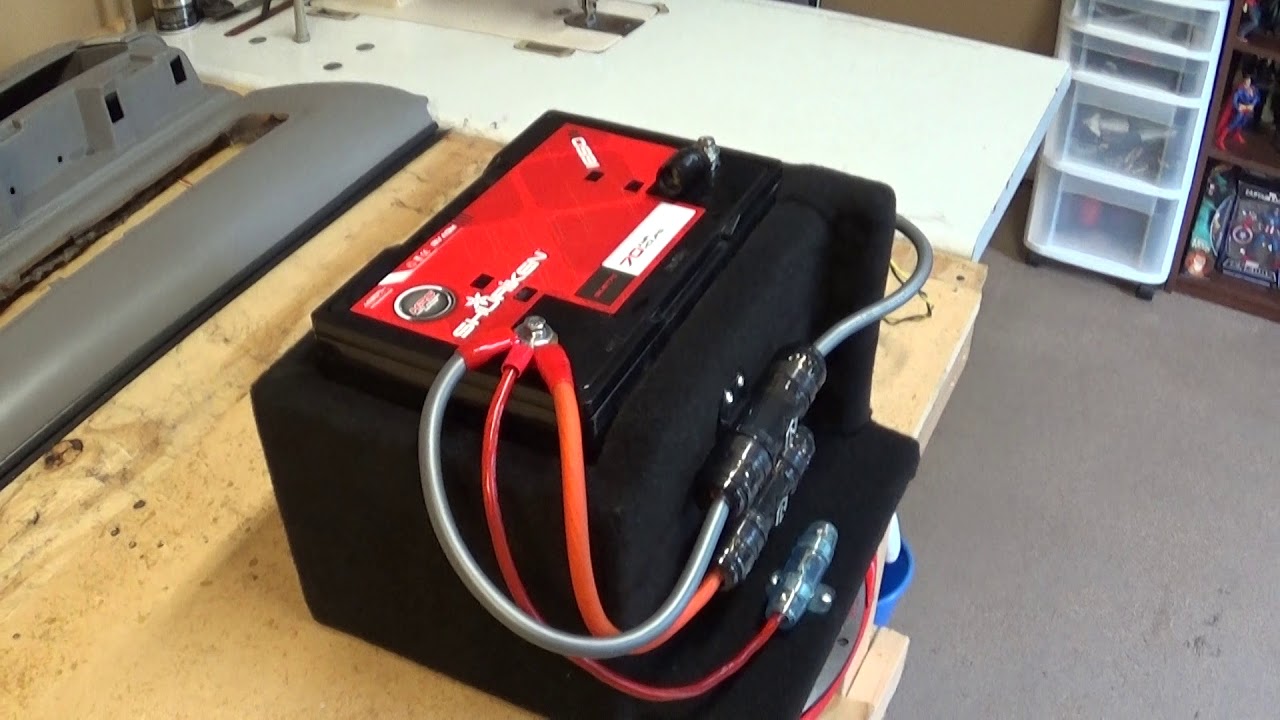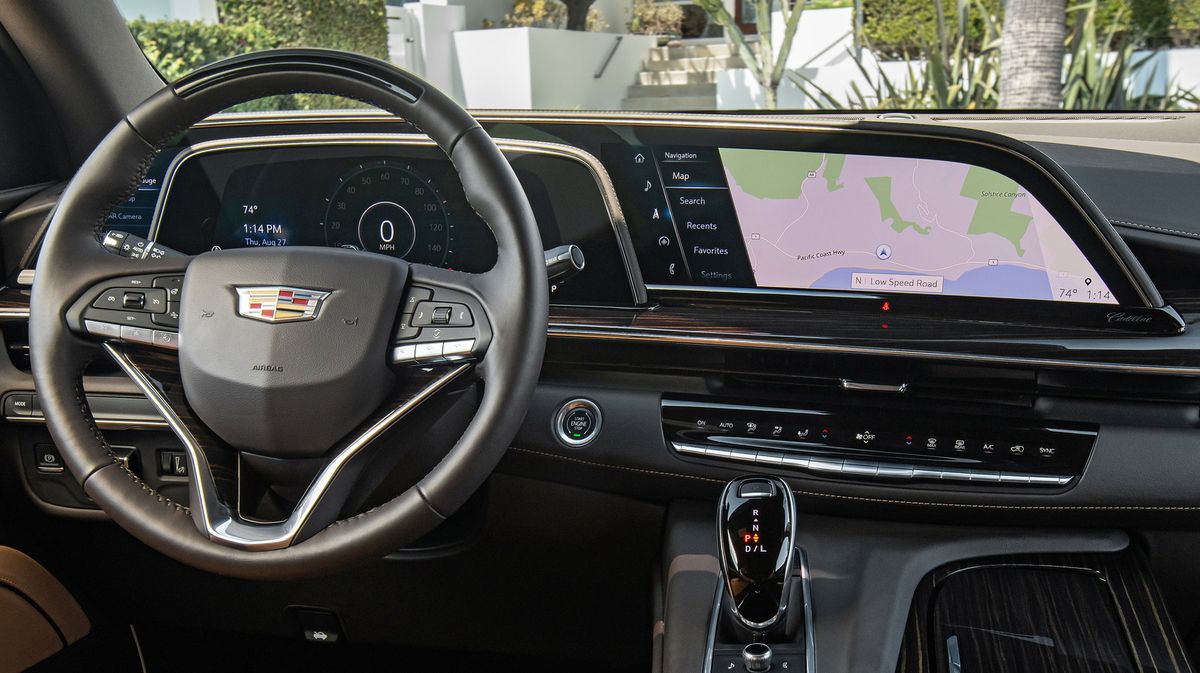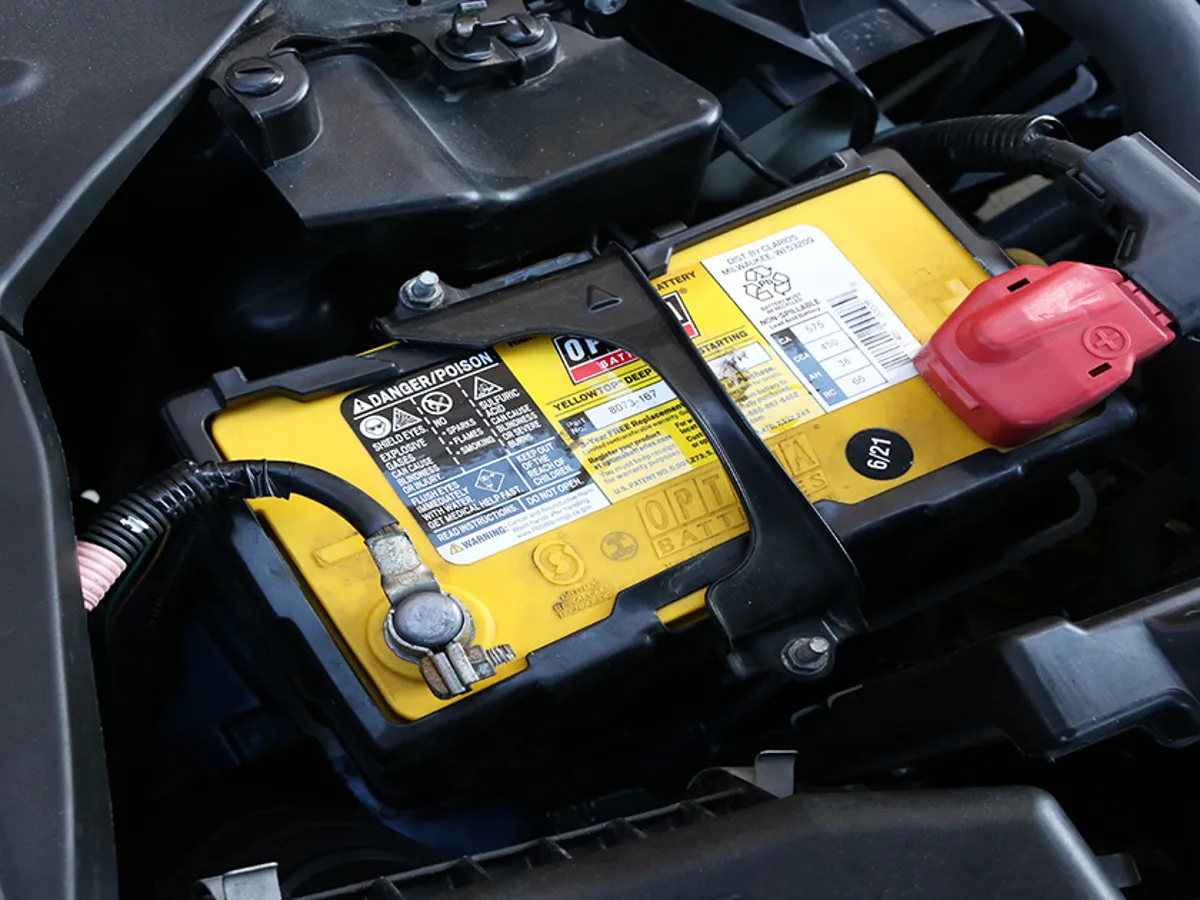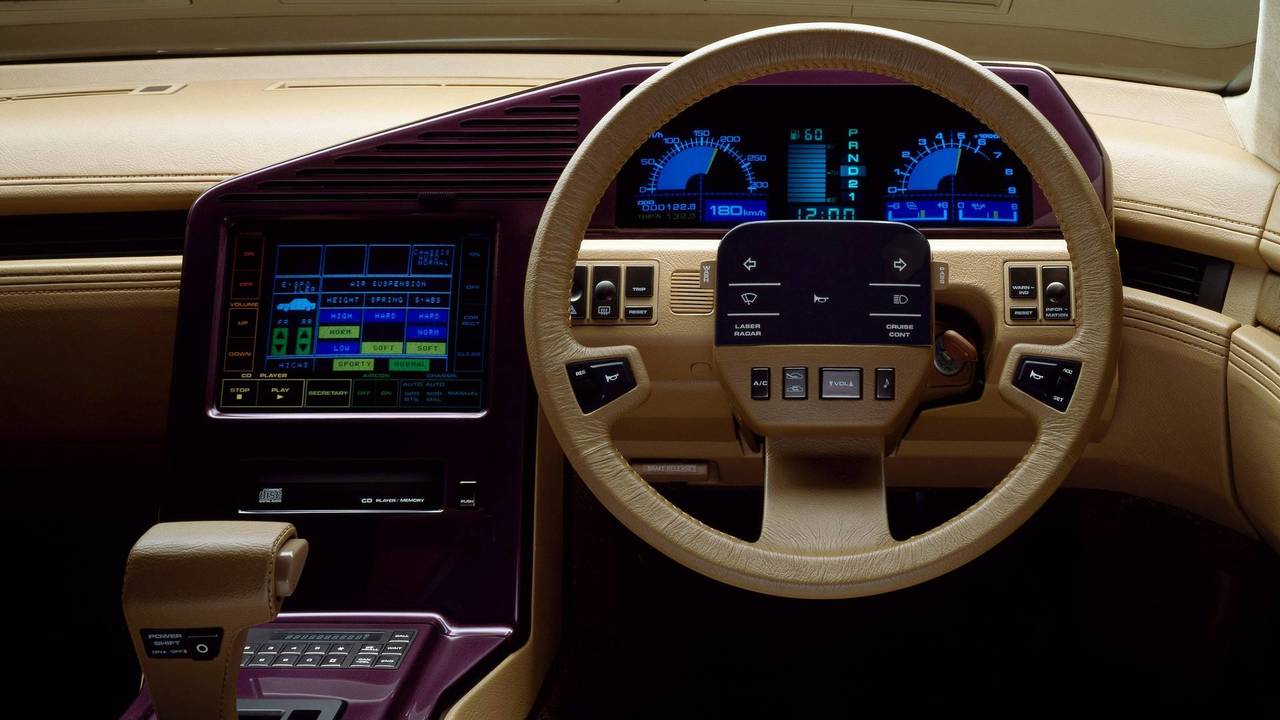Home>Devices & Equipment>Radio>How Long Will Car Battery Last With Radio On
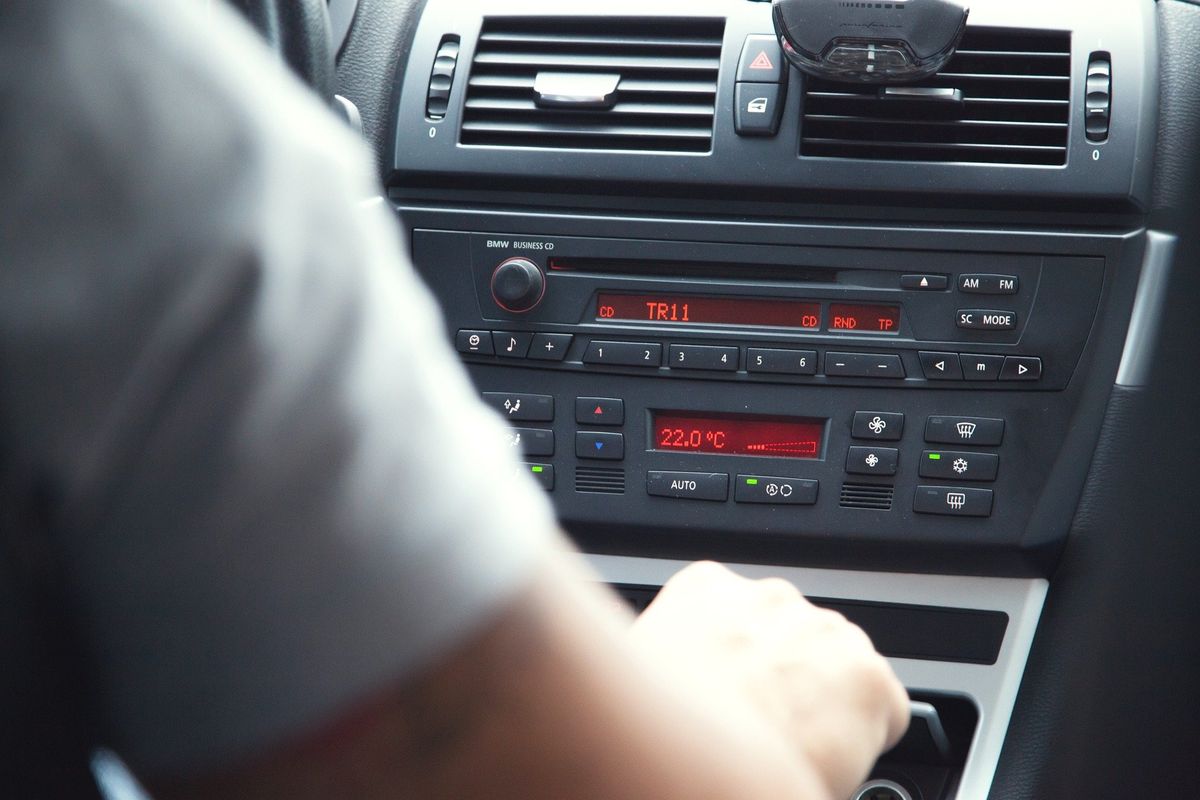

Radio
How Long Will Car Battery Last With Radio On
Modified: January 22, 2024
Discover how long your car battery will last with the radio on. Learn tips to maximize battery life and ensure your radio enjoyment on the road.
(Many of the links in this article redirect to a specific reviewed product. Your purchase of these products through affiliate links helps to generate commission for AudioLover.com, at no extra cost. Learn more)
Table of Contents
Introduction
Radio has been a popular entertainment medium for decades, providing music, news, and engaging content to listeners around the world. Whether you love tuning in to your favorite radio stations during your daily commute or enjoy a relaxing drive while listening to your favorite tunes, the radio is a staple feature in many vehicles. However, one question that often arises is how long the car battery will last with the radio on.
While the radio can provide hours of entertainment and company during your journey, it also draws power from your car’s battery. Understanding the factors that affect car battery life and the power consumption of car radios is essential to manage your battery effectively and ensure it lasts as long as possible.
In this article, we will explore the various factors that can impact a car battery’s lifespan when the radio is running. We will discuss the average lifespan of car batteries, the power consumption of car radios, and provide some tips for prolonging your car battery’s life. By understanding these factors, you can make informed decisions about using the radio in your car without worrying about draining the battery.
Factors Affecting Car Battery Life
Several factors can affect the overall lifespan of a car battery, especially when the radio is in use. Understanding these factors can help you gauge how long your car battery will last with the radio on and take necessary measures to optimize its performance.
Battery Age: The age of your car battery plays a significant role in its performance. As batteries age, their capacity to hold a charge decreases, making them more susceptible to draining quickly when power-hungry devices like the radio are in use.
Battery Quality: The quality of the battery also influences its lifespan. Opting for a high-quality battery from a reputable manufacturer can ensure better performance and longevity.
Temperature: Temperature extremes can affect the chemical reactions within the battery, which in turn impacts its performance and lifespan. High temperatures can cause the battery to lose its ability to hold a charge, while extremely low temperatures can reduce the battery’s capacity.
Driving Habits: The way you drive and use your vehicle can affect the lifespan of the car battery. Continuous short trips without giving the battery enough time to recharge fully can lead to a shortened lifespan.
Electrical Accessories: The number and power consumption of electrical accessories in your vehicle, including the radio, can add to the load on the battery. The more accessories you have running simultaneously, the faster the battery may drain.
Maintenance: Regular maintenance and care can significantly extend the life of a car battery. Keeping the battery terminals clean, ensuring proper charging, and performing routine checks can help identify any issues early and prevent potential battery failure.
Keep in mind that these factors interact with each other, so it’s essential to consider them collectively when assessing your car battery’s lifespan with the radio on. Next, we will delve into the power consumption of car radios to understand their impact on battery life.
Power Consumption of Car Radios
Car radios come in various forms, from basic AM/FM radios to more advanced multimedia systems with CD players, Bluetooth connectivity, and touchscreen displays. The power consumption of car radios depends on the type and features of the radio.
AM/FM Radios: Traditional AM/FM radios consume relatively low power compared to more advanced systems. They typically range from 5 to 15 watts, depending on the volume level and station signal strength.
CD Players: Car radios equipped with CD players consume additional power when playing CDs. The CD spinning mechanism and laser reader require extra energy, resulting in slightly higher power consumption compared to radios without CD players.
Bluetooth Connectivity: If your car radio supports Bluetooth connectivity, it allows you to wirelessly connect your devices and stream music or make hands-free calls. While Bluetooth itself consumes minimal power, enabling Bluetooth on your radio may increase overall power consumption due to the additional processing required for wireless connectivity.
Touchscreen Displays: Advanced multimedia systems often have touchscreen displays that provide a user-friendly interface. These displays require constant power to operate, making them more power-hungry compared to radios with simple button controls.
It’s worth noting that modern car radios are designed to be energy-efficient, as manufacturers recognize the importance of conserving battery power. However, extended use of the radio, especially at high volume levels, can still have an impact on the overall power consumption of your vehicle.
Now that we have explored the power consumption of car radios, let’s move on to understanding the average lifespan of car batteries and how using the radio can affect it.
Average Lifespan of Car Batteries
The average lifespan of a car battery depends on various factors, including the brand, quality, maintenance, and usage. On average, a car battery can last anywhere from 3 to 5 years. However, this estimate can vary depending on the aforementioned factors.
It’s important to note that heavy usage of electrical accessories, including the radio, can impact the battery’s lifespan. The more frequently and intensively you use your car’s electrical system, the faster the battery may drain and deteriorate.
Additionally, extreme temperatures can also affect the lifespan of car batteries. High temperatures can cause increased wear on the battery’s internal components, leading to a shortened lifespan. On the other hand, extremely cold temperatures can reduce the battery’s capacity to deliver power, which can also impact its overall longevity.
Maintaining your car battery through regular checks and proper care can help extend its lifespan. Ensuring the battery terminals are clean, free from corrosion, and securely connected can promote efficient charging and help prevent premature battery failure.
It’s worth mentioning that while car batteries have a general lifespan, there can be variations between different vehicles and battery types. Some vehicles, such as hybrids or electric cars, may have different battery systems that require specific maintenance and have their own expected lifespan.
So, when considering how long your car battery will last with the radio on, it’s important to have a rough estimate of the battery’s age, quality, and overall health. These factors, along with the power consumption of your car radio, will allow you to make better decisions to ensure your battery’s longevity.
Now that we have an understanding of average car battery lifespans, let’s explore the impact of using the radio on battery life.
Impact of Using Radio on Battery Life
Using the radio in your car, especially for an extended period, can have a noticeable impact on the overall life of your car battery. The radio draws power from the battery to operate, which can lead to the battery draining more quickly.
The power consumption of the radio depends on various factors, including the type of radio, volume level, and additional features such as CD players or Bluetooth connectivity. Radios with more advanced features and higher volume levels tend to consume more power than basic AM/FM radios.
When the radio is running, it increases the electrical load on the car’s battery, causing it to discharge at a faster rate. This means that if you continuously use the radio without the engine running, the battery will eventually drain and may not have enough power left to start the car.
It’s important to note that the impact of using the radio on battery life will depend on the overall health and capacity of the battery. A newer battery with a higher capacity will typically last longer with the radio on compared to an older or weaker battery.
Furthermore, factors such as temperature and driving habits can also affect the battery’s ability to handle the increased load from the radio. Higher temperatures can exacerbate the drain on the battery, while continuous short trips without allowing the battery sufficient time to recharge can further deplete its charge.
To mitigate the impact on battery life when using the radio, it’s advisable to follow a few guidelines. Firstly, avoid using the radio for extended periods when the engine is not running, as this can quickly drain the battery. It’s also recommended to periodically start the engine and let it run to recharge the battery.
If you anticipate using the radio for a prolonged duration, consider connecting a battery maintainer or charger to keep the battery charged while listening. This will help offset any power drawn from the battery and keep it in a healthier state.
By being mindful of the radio usage and taking steps to minimize its impact on the battery, you can enjoy your favorite tunes without risking a dead battery.
Next, we will explore some tips for prolonging the life of your car battery, regardless of radio usage.
Tips for Prolonging Car Battery Life
Prolonging the life of your car battery is essential to ensure reliable performance and minimize the risk of unexpected breakdowns. Here are some tips to help extend your car battery’s lifespan:
- Limit Electrical Usage: Minimize the usage of electrical accessories when the engine is not running. This includes the radio, headlights, and other power-hungry devices. Turning off the radio and other accessories when they are not needed can help preserve battery power.
- Avoid Short Trips: Continuous short trips without allowing the battery to fully recharge can lead to a strain on the battery. Whenever possible, combine short trips or take longer drives to give the battery ample time to recharge.
- Maintain Proper Battery Connections: Ensure the battery terminals are clean, free from corrosion, and securely connected. Loose or corroded connections can increase resistance and hinder the charging process.
- Keep Battery Secure: Make sure the battery is securely mounted in place to prevent excessive vibrations. Vibrations can damage the internal components of the battery and shorten its lifespan.
- Avoid Extreme Temperatures: Extreme temperatures can affect the performance and lifespan of the battery. Park your vehicle in shaded areas or use a car cover to minimize exposure to heat, especially during hot summer months.
- Regular Maintenance: Follow the manufacturer’s recommended maintenance schedule for your vehicle, including routine battery checks. Inspect the battery for any signs of corrosion or damage and have it tested periodically to monitor its health.
- Use a Battery Maintainer or Charger: If your vehicle will be sitting idle for an extended period, consider using a battery maintainer or charger to keep the battery charged. This is especially important during periods of inactivity, such as when going on vacation or storing the vehicle for an extended duration.
By adhering to these tips, you can prolong the life of your car battery and minimize the risk of unexpected battery failures. Remember, taking good care of the battery not only benefits its performance but also ensures a smooth driving experience.
Now that we have explored the tips for prolonging car battery life, let’s conclude our discussion.
Conclusion
The radio is a beloved companion during our journeys, providing entertainment and company on the road. However, it’s essential to be aware of how using the radio can affect the lifespan of your car battery.
We have discussed the various factors that can impact car battery life, including battery age, quality, temperature, driving habits, electrical accessories, and maintenance. These factors interact with each other and collectively affect how long your car battery will last, especially with the radio on.
The power consumption of car radios varies depending on the type and features of the radio. AM/FM radios generally consume less power compared to systems with CD players, touchscreen displays, or Bluetooth connectivity. However, prolonged use of any type of radio can gradually drain the battery, reducing its overall lifespan.
On average, car batteries last between 3 to 5 years, depending on various factors. Using the radio extensively can contribute to a faster drain on the battery. However, by taking steps to minimize power consumption when the engine is not running and following maintenance guidelines, you can help prolong your car battery’s life.
To preserve your car battery’s lifespan, limit electrical usage, avoid short trips, maintain proper battery connections, secure the battery, avoid extreme temperatures, conduct regular maintenance, and consider using a battery maintainer or charger during periods of inactivity.
By understanding and implementing these tips, you can enjoy your car radio while ensuring that you don’t experience unexpected battery failures. It’s all about striking a balance between enjoying the radio and taking care of your car battery.
Remember, your car battery serves as the heartbeat of your vehicle’s electrical system, and taking proactive steps to maintain its health will lead to a more reliable and hassle-free driving experience.
So, next time you turn on the radio in your car, keep in mind the impact it may have on your car battery and take the necessary precautions to keep your battery in good shape. Happy driving and happy listening!





